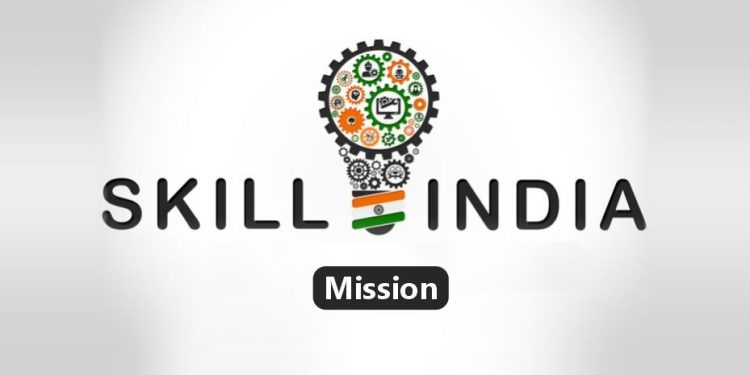In a significant step toward reinforcing workforce development and enhancing economic growth, the Union Cabinet, chaired by Prime Minister Shri Narendra Modi, has approved the continuation and restructuring of the Central Sector Scheme ‘Skill India Programme (SIP)’ until 2026. With an allocation of Rs. 8,800 crore for the period from 2022-23 to 2025-26, the initiative aims to integrate demand-driven, technology-enabled, and industry-aligned training across the nation, making skilling the backbone of India’s economic progress.
Revamped Structure of the Skill India Programme
The restructuring of the Skill India Programme brings together three key initiatives under a single composite scheme:
- Pradhan Mantri Kaushal Vikas Yojana 4.0 (PMKVY 4.0)
- Pradhan Mantri National Apprenticeship Promotion Scheme (PM-NAPS)
- Jan Shikshan Sansthan (JSS) Scheme
By consolidating these flagship schemes under the Ministry of Skill Development and Entrepreneurship (MSDE), the government is ensuring structured skill development, on-the-job training, and community-based learning for both urban and rural populations, particularly marginalized communities. With over 2.27 crore beneficiaries to date, the initiative is making quality vocational education more accessible than ever before.
Pradhan Mantri Kaushal Vikas Yojana 4.0: Industry-Oriented Skilling
PMKVY 4.0 has undergone transformational changes to make skill development training industry-oriented and aligned with national priorities. Key highlights include:
- Integration of On-the-Job Training (OJT): This ensures trainees gain real-world exposure and hands-on industry experience.
- Focus on Emerging Technologies: Over 400 new courses have been introduced in areas like Artificial Intelligence, 5G, Cybersecurity, Green Hydrogen, and Drone Technology.
- Blended and Flexible Learning: A digital delivery model makes training more scalable and accessible.
- Micro-Credential Courses: New National Occupational Standards (NoS)-based courses, ranging from 7.5 to 30 hours, provide targeted skill development.
- Skill Hubs Expansion: Established across premier institutions such as IITs, NITs, Jawahar Navodaya Vidyalayas (JNVs), Kendriya Vidyalayas, and various other academic centers.
- Multilingual Training: Over 600 trainee and trainer handbooks have been translated into eight regional languages to enhance learning outcomes.
- Quality Assessments: A national pool of one lakh assessors and trainers ensures standardized and high-quality training.
International Mobility & Employment
A critical component of PMKVY 4.0 is its focus on preparing Indian workers for global employment opportunities. With Mobility Partnership Agreements (MMPAs) and MoUs with multiple countries, training programs now include domain skills, joint certifications, language proficiency, and soft skills, enabling seamless international workforce integration.
Inter-Ministerial Convergence
The scheme integrates with various governmental initiatives, including:
- PM Vishwakarma (MSME sector)
- PM Surya Ghar: Muft Bijli Yojana
- National Green Hydrogen Mission
- NAL JAL Mitra
These partnerships enhance sectoral skill development and maximize resource utilization, ensuring holistic workforce development.
PM National Apprenticeship Promotion Scheme (PM-NAPS): Learning & Earning
Apprenticeship training is a globally recognized method for skill acquisition, offering youth the chance to gain real-world skills while earning a stipend. Under PM-NAPS:
- 25% of the stipend (up to Rs.1,500/month per apprentice) is provided by the Central Government through Direct Benefit Transfer (DBT).
- Target Beneficiaries: Youth aged 14 to 35 years.
- Industry-Oriented Training: Includes AI, robotics, blockchain, green energy, and Industry 4.0.
- MSME & Regional Focus: Encourages apprenticeship opportunities, particularly in aspirational districts and North-Eastern regions.
By linking education to workplace training, PM-NAPS ensures that young professionals are job-ready upon completion of their apprenticeships.
Jan Shikshan Sansthan (JSS): Community-Based Skilling
JSS is designed to provide flexible and inclusive vocational training, primarily benefiting women, rural youth, and economically disadvantaged groups. Key features include:
- Low-Cost Training at Doorsteps: Ensuring accessibility for marginalized communities.
- Integration with Government Initiatives: Aligns with PM JANMAN, ULLAS, and other empowerment programs.
- Holistic Skill Development: Covers financial literacy, gender equality, and health awareness, alongside vocational training.
By providing training in local communities, JSS enhances self-employment and livelihood opportunities at the grassroots level.
Seamless Integration & Future-Ready Workforce
All certifications under the Skill India Programme are mapped to the National Skills Qualification Framework (NSQF) and integrated with DigiLocker and the National Credit Framework (NCrF). This ensures formal recognition of acquired skills and smooth transitions into employment or higher education.
Additionally, data from the Periodic Labour Force Survey (PLFS) will be leveraged to align skilling policies with emerging industrial and economic trends.
Conclusion: Strengthening India’s Economic Backbone
The Skill India Programme stands as a pivotal initiative in equipping India’s workforce with the necessary skills to thrive in a rapidly evolving global economy. By integrating industry-relevant training, emerging technologies, and international mobility pathways, the program is poised to create a highly skilled, globally competitive workforce.
As a driver of economic empowerment, Skill India is set to contribute to employment generation, entrepreneurship, and productivity enhancement across various sectors. The Ministry of Skill Development & Entrepreneurship remains committed to strengthening vocational education, expanding apprenticeship opportunities, and fostering lifelong learning, ensuring that India’s workforce remains future-ready and globally competitive.
For more details, visit: Skill India Digital














